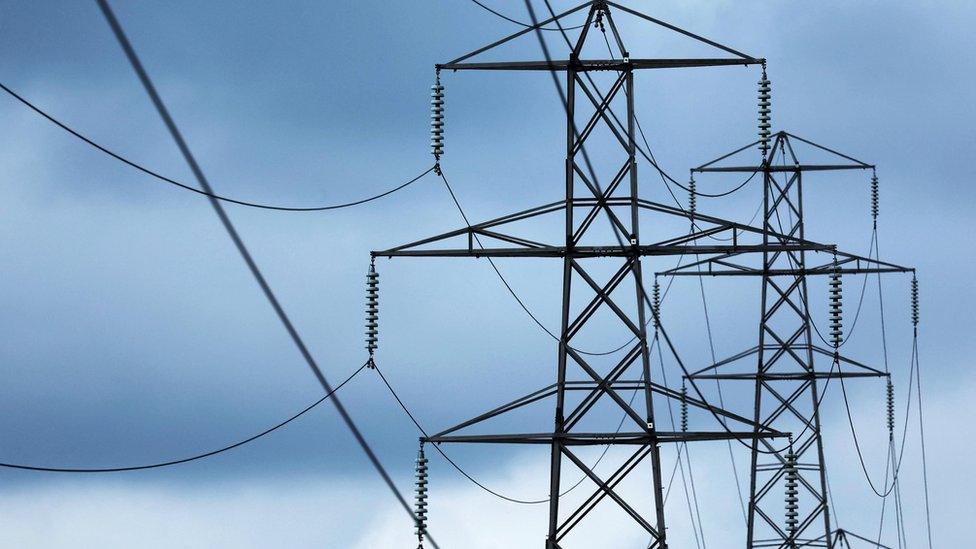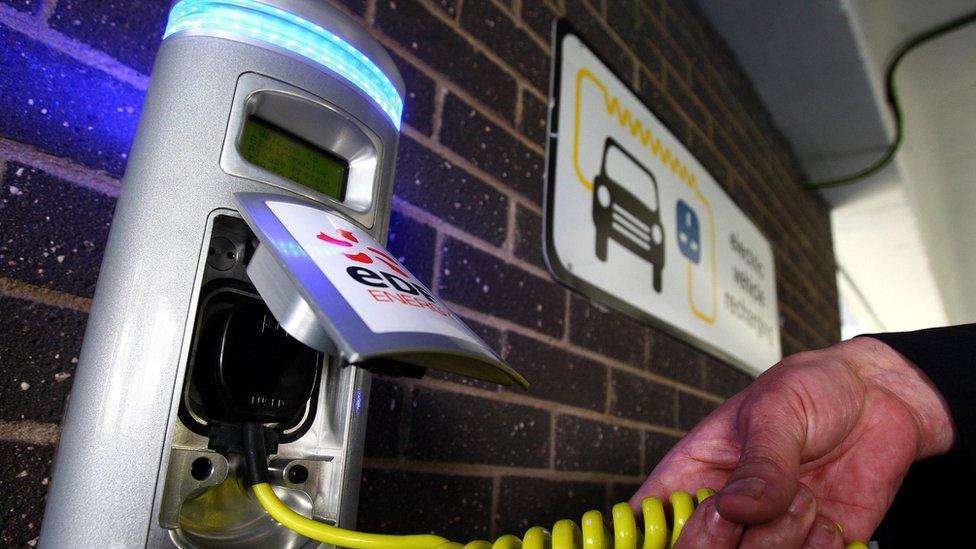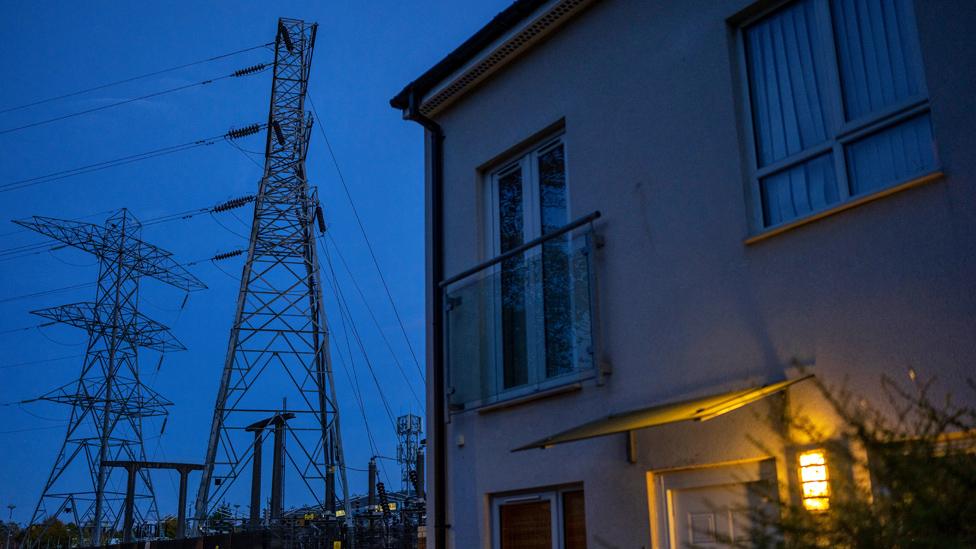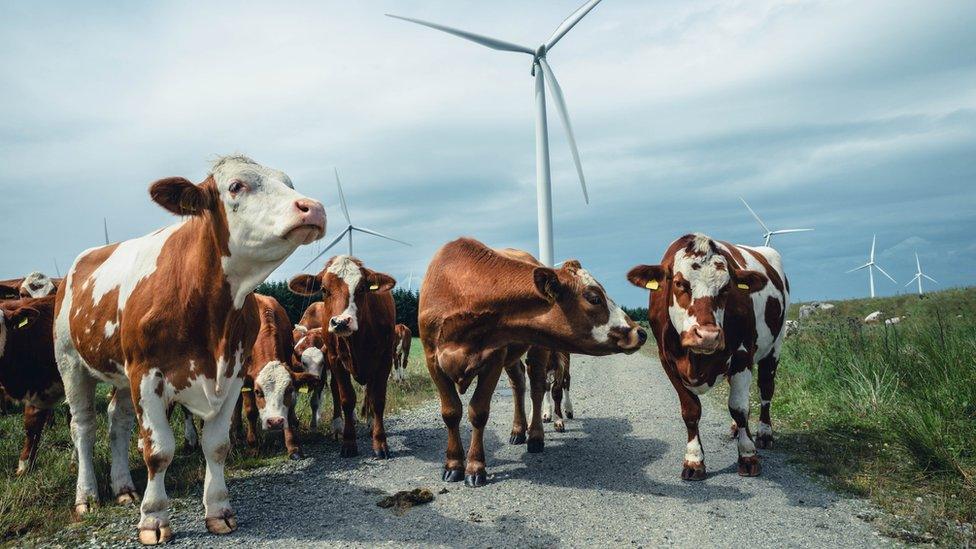Autumn Statement: Homes close to new pylons to get £1,000 off bills
- Published

Households living close to new pylons and electricity substations could receive up to £1,000 a year off energy bills for a decade under new plans.
It is hoped the plan would convince people to support upgrades in their area, which are needed in part for new electric vehicle charging points.
Chancellor Jeremy Hunt is expected to announce the policy in the Autumn Statement on Wednesday.
It is unclear at this stage how many households will get the full discount.
Mr Hunt and Prime Minister Rishi Sunak are currently finalising the content of the statement, which will set out the priorities for government spending in the final year before a general election has to be held.
It is known that they are considering announcing some tax cuts, and changes to income tax, national insurance, inheritance tax and business taxes are all being discussed.
But the Treasury has indicated the pounds-for-pylons plan will definitely form part of the chancellor's statement.
A spokesman said: "By speeding up the planning system - including the rollout of electric vehicle charge-points - we will be tackling one of the most common issues raised by businesses who are keen to invest in the UK."
The department declined to say who would be paying for the discounts, or offer any information on how close houses would have to be to qualify for the maximum discount.
One of the government's manifesto commitments in 2019, external was to reach net zero by 2050 by investing in clean energy solutions and green infrastructure.
To better connect with renewable energy projects, much of the UK's electricity network needs upgrading.
However, it currently takes 12 to 14 years to build new electricity transmission lines, external - and the government says it is aiming to cut that time in half.
Under the plan, nationally significant low-carbon energy infrastructure will be designated as a "critical national priority", to underline its importance to local planning officers who are required to approve to building projects.
Matt Copeland, head of policy at the National Energy Action campaign to eradicate fuel poverty, said: "It's only right that those affected by pylons are compensated - but this is not a substitute for the UK government supporting vulnerable people with their sky-high energy bills."
Earlier this summer, a government-commissioned report recommended the idea of simply smoothing the path for the building of new large pylons by handing over cash to those who would be affected.
Nick Winser, the former chief executive of the National Grid, said a radical solution was needed to streamline the planning process and his report said people living near newly-built transmission pylons, the larger lines that connect electricity from where it is generated to regional substations, should get lump sum payments.
He pointed out that the cost of compensation would be lower than building cables underground and much cheaper than resorting to offshore cables.

Thousands more EV (electric vehicle) charging points will be needed in the next two decades
The three companies that maintain the transmission grid in Great Britain - National Grid in England and Wales, and Scottish Power and SSE in Scotland - do not currently offer any payments to households.
But in the Republic of Ireland, people in rural areas living within 200m of a new overhead line or transmission station qualify for payments of between €2,000 and €30,000 from EirGrid, the state-owned operator, depending on how close they are and the capacity of the line.
Ed Miliband, Labour's shadow energy security and net zero secretary, said the Conservative had failed to "solve the problems of the grid", after 13 years in power.
"Every family is paying the price of the Tories' failures to deliver clean power- from banning onshore wind, to winding down our storage, to crashing solar, to failing to upgrade our grid," Mr Miliband said.
Liberal Democrat Treasury spokeswoman Sarah Olney said: "This scheme would create a postcode lottery system leaving millions of families still facing higher energy bills while others benefit."
Related topics
- Published4 August 2023

